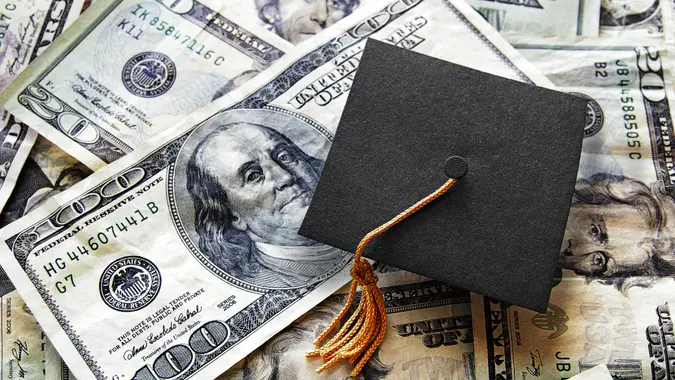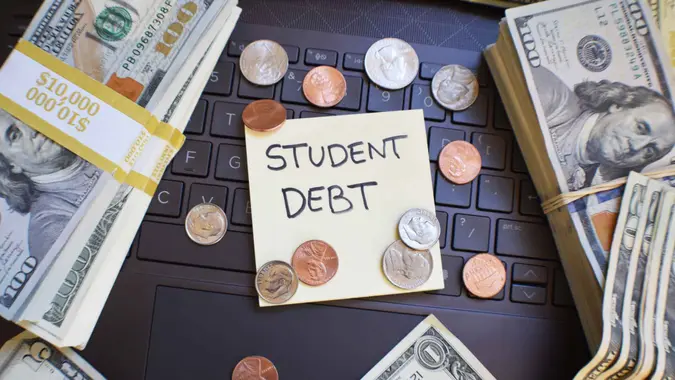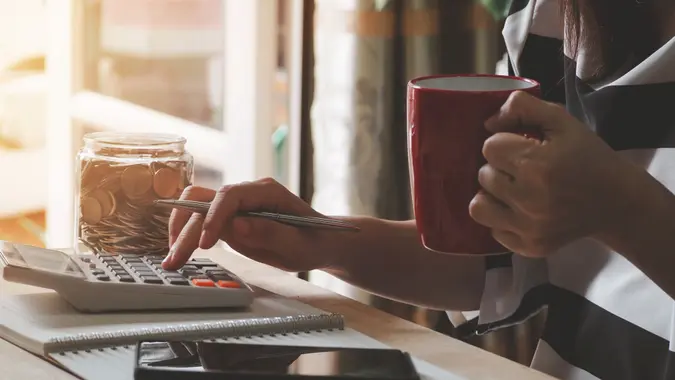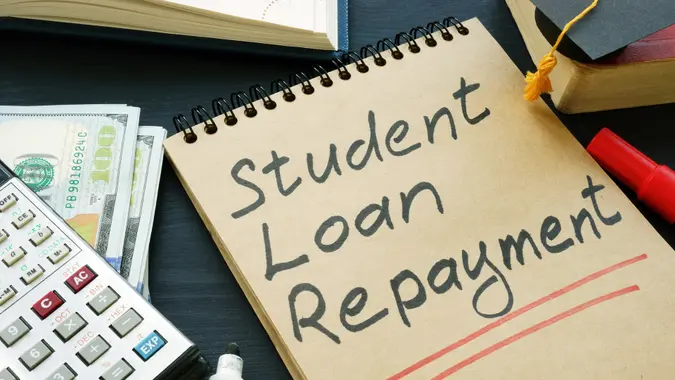What To Do If You Can’t Afford Your Student Loan Payments

Commitment to Our Readers
GOBankingRates' editorial team is committed to bringing you unbiased reviews and information. We use data-driven methodologies to evaluate financial products and services - our reviews and ratings are not influenced by advertisers. You can read more about our editorial guidelines and our products and services review methodology.

20 Years
Helping You Live Richer

Reviewed
by Experts

Trusted by
Millions of Readers
After college, real life strikes. You may or may not be able to translate your degrees into a well-paying job, and even if you do, sometimes unexpected challenges happen. You may become unemployed or suffer economic struggles such as those that have accompanied the COVID-19 pandemic. Even if you’re currently getting state or federal aid or unemployment benefits, these will eventually expire and you’ll need to plan for the future. If economic uncertainty or job loss has affected your ability to make your student loan payments, it can add a level of stress you may not have anticipated or don’t know how to deal with.
NEW POLL: How Much Will You Spend Over the Holidays Relative to Last Year?Find Out: 50 Ways To Live the Big Life on a Small Budget
If you’re facing an inability to make student loan payments, first, don’t panic. Keep a level head, take your situation seriously and look into one of the following options, or speak with a financial advisor to help you figure out a plan.
Cut Costs in Your Life
The first and most obvious place to start is to cut costs in your life to free up the cash you need to pay your loans. Student Loan Hero recommends assessing common expenses and asking the following questions: Do you need that service or item? Can you find it more cheaply from another provider or service, and does it really even add value to your life? Also, try negotiating the cost of some bills or switching to different plans with the provider for things such as cellphone service, cable TV or streaming entertainment services and more.
See: 9 Ways Student Debt Is Affecting Every Aspect of Americans’ Lives
Seek New Income Sources
Depending on your situation, a lack of cash may be solvable by taking on extra work somewhere else. Consider an independent gig such as driving for a ride-share service, offering your skills in the form of consulting or even picking up a second part-time job. Alternately, look for things in your home you might be able to sell immediately.
Read: What It Would Really Mean To Cancel Student Loan Debt
Change Payment Plans
Just because you chose one kind of payment plan may not mean you’re tied to it. There are numerous kinds of loan repayment plans, from graduated plans to pay-as-you-earn plans that might be a better fit. Additionally, you might be able to extend the length of your loan, from 10 years to 25, for example, which can reduce your monthly payment.
Find Out: 10 Best Lucrative Side Hustle Ideas – Earn More
Apply For Deferment or Forbearance
Find out if you qualify for loan deferment or forbearance. Deferment is when you can put off having to pay principal and interest on your loan due to certain circumstances ranging from underemployment, being enrolled in school or serving in the military. Forbearance is also a form of putting off your payments, but usually for a limited time period, typically with a 12-month maximum. Your loan service will have specific requirements for qualification.
Refinance To Get a Better Rate
Another option is to refinance your loan to reduce the interest rate, which can translate to smaller monthly payments. There is a caveat here, however. When you refinance a federal loan, it becomes a private loan, which removes your forgiveness and income repayment plan options on the federal loan. So check out a loan refinance calculator to see if it’s even worth it first.
More: 30 Ways To Dig Yourself Out of Debt
Avoid Collections
No matter what strategy, or combination of them, you employ, your goal should be to keep your loan from going to collections. This typically happens only after you’ve left your loans unpaid for somewhere between 270 and 360 days, putting your loan into default. Not only does your full loan balance become due immediately, but you will also likely incur steep fees, your wages can be garnished and your credit will take a hit.
- 5 Things Most Americans Don’t Know About Social Security
- 10 Reasons You Should Claim Social Security Early
- How To Use a Credit Card Like a Pro This Holiday Season
- Should You Refinance Now With the Low Mortgage Rates?
Last updated: Oct. 29, 2021
 Written by
Written by  Edited by
Edited by 

























